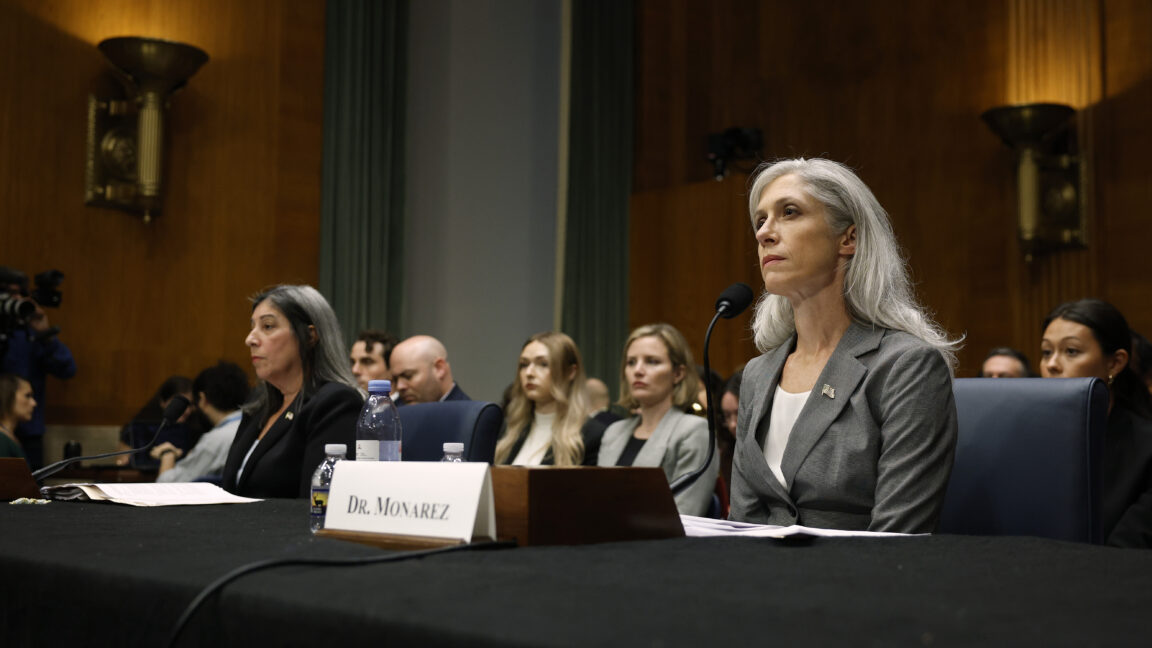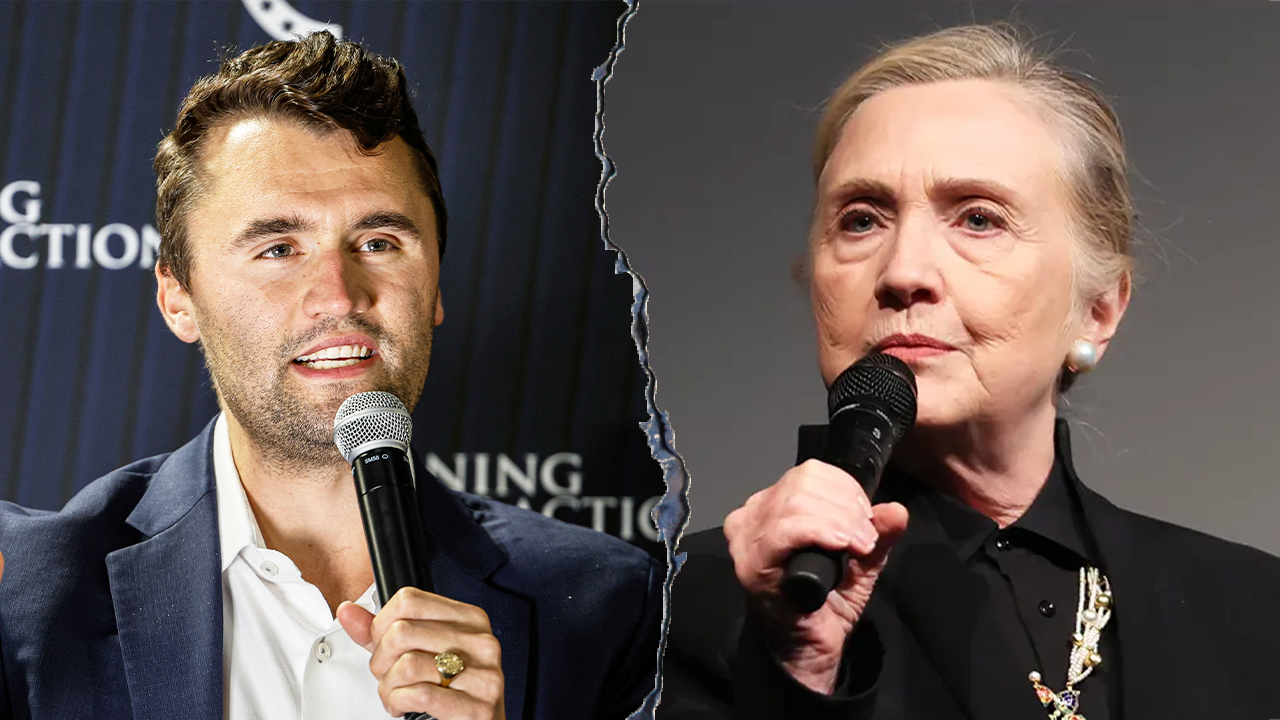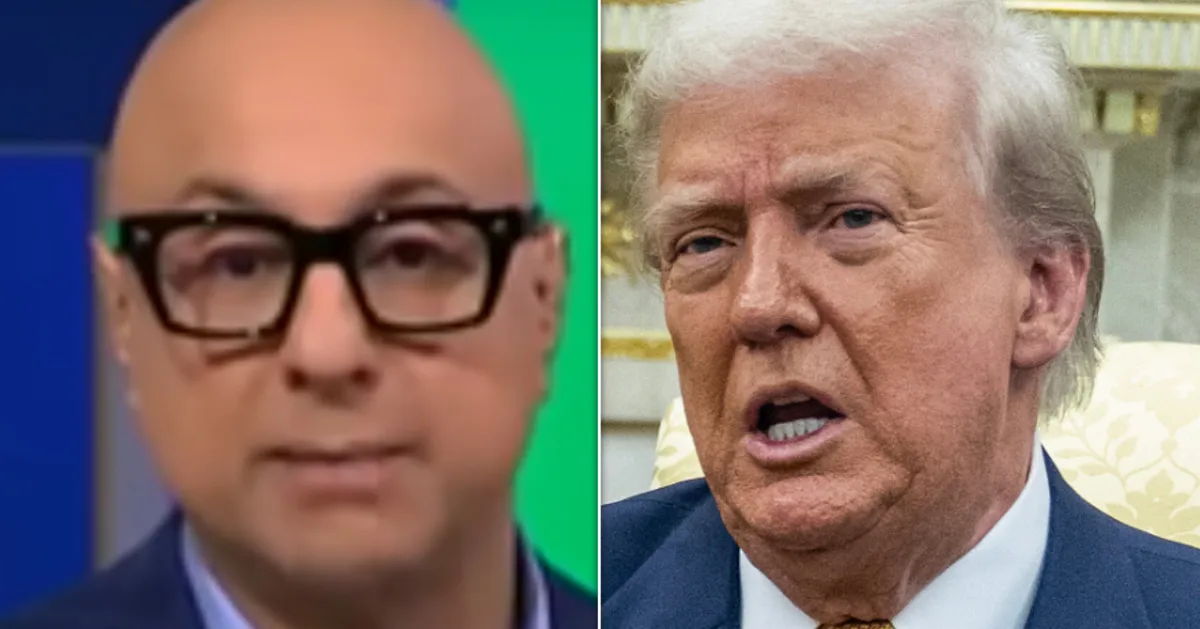
Health secretary and anti-vaccine activist Robert F. Kennedy Jr. plans to roll back access to lifesaving vaccines for children, and has refused to even speak with staff scientists and subject-matter experts at the Centers for Disease Control and Prevention about evidence-based recommendations. That’s according to former CDC officials who testified before the Senate on Wednesday.
The Senate Committee on Health, Education, Labor, and Pensions (HELP) called ex-CDC director Susan Monarez to review the chaos that has engulfed the public health agency under Kennedy. Monarez, a microbiologist and long-serving federal employee, led the CDC as the first Senate-confirmed director for just 29 days before her dramatic ouster last month. She appeared before the HELP committee alongside Debra Houry, the former chief medical officer for the CDC. Houry had worked at the agency for a decade—spanning four administrations and six directors— before resigning in protest against Kennedy’s leadership soon after Monarez’s ouster.
Monarez’s ouster
Much of their testimony today was alarming, but not surprising. Upon her exit, Monarez claimed that she was fired because she refused Kennedy’s demand that she agree in advance to approve changes to the CDC’s childhood vaccine recommendations regardless of whether any scientific evidence supported the changes. She also claimed that Kennedy demanded that she fire CDC scientific leadership without cause, which she also refused to do. Similarly, when Houry resigned, she said Kennedy was censoring science, steamrolling CDC experts, and spreading misinformation. In the hearing today, the two stood by their previous comments and provided more details.
Their testimony today was partly in response to a Senate hearing earlier this month, in which Kennedy testified that Monarez is a liar and that he never demanded she preapprove vaccine recommendations. Instead, he claimed he had fired Monarez because she answered “no” when he asked her if she was a trustworthy person. In the hearing today, Monarez disputed that she was a liar and that she said she was not trustworthy. She reiterated her claims about why she was fired, saying Kennedy made the demands in an August 25 meeting.
At one point in today’s hearing, Sen. Markwayne Mullin (R-Ok.) claimed that there is a recording of that meeting and that he was in possession of it—a claim that Sen. Bill Cassidy (R-La.), chair of the HELP committee, and ranking member Sen. Bernie Sanders (I-Vt.) were shocked to hear. Mullin claimed that the recording proved that Monarez was lying about her exchange with Kennedy. But immediately after leaving the hearing, Mullin told a reporter for PBS NewsHour that there is no recording.
The false twist highlighted just how remarkably politicized and contentious the situation—which at its root is about long-standing, safe, evidence-based childhood vaccine recommendations—has become.
Anti-science agenda
As Sanders said in his opening remarks today: “It is absurd to have to save this in the year 2025, but vaccines are safe and effective.” Sanders then ticked off a long list of medical organizations—collectively representing hundreds of thousands of doctors—who agree with that fact. Monarez and Houry also agree.
But, it is clear that Kennedy does not agree—and he is personally steering federal policies to align with his unfounded views. In the hearing today, Houry noted that Kennedy has refused to work with CDC scientists or review any data. In a question from Sen. Susan Collins (R-Maine) regarding the CDC’s response to the record-breaking measles outbreak this year, Houry said he refused briefings from experts, spread misinformation about the measles vaccines, and tried to force the CDC to recommend unproven treatments for the viral disease.
“First, I never briefed the secretary, as did the center director who oversaw measles—never briefed the secretary,” Houry said. “In an outbreak response, usually you would be briefing leadership. The second thing is he said things like vaccines had fetal parts, and I had to send a note to our leadership team to correct that misinformation. We were also asked to include things like budesonide [a treatment for Crohn’s disease] and clarithromycin [an antibiotic that treats bacterial infections] in our toolkits for physicians. And I couldn’t allow that as there wasn’t evidence for that and would result in harm.”
Kennedy’s views on the CDC
Monarez’s testimony shed more light on Kennedy’s feelings about CDC scientists. In exchanges with Sen. Maggie Hassan (D-NH) and Sen. Angela Alsobrooks (D-Md.), Monarez said Kennedy falsely claimed that none of the CDC’s vaccine recommendations were actually backed by science and that the scientists at the agency were not good people.
“This is when he stated that CDC had not collected the data or the science. There was no scientific evidence associated with these vaccines. He said that CDC had failed in its duties to be able to appropriately evaluate the safety, the efficacy. [CDC] never had conducted controlled clinical trials, placebo-controlled clinical trials associated with the vaccines. He made another set of assertions associated with CDC that were particularly pointed and particularly hurtful and disparaging. He called, in that context, the CDC the most corrupt federal agency in the world—emphasized that CDC employees were horrible people. He said that CDC employees were killing children, and they don’t care. He said that CDC employees were bought by the pharmaceutical industry. He said CDC forced people to wear masks and social distance like a dictatorship. And the one, I think that hurt me the most, was a particularly vivid phrase. He said during the COVID outbreak, CDC told hospitals to turn away sick COVID patients until they had blue lips before allowing them to get treatment.”
“And it is fair to say, in your view, that those statements were not true,” Hassan asked.
“Those statements are not true,” Monarez replied.
Gag orders
Kennedy, who has no background in science or medicine, has made many of those statements in the past, including the things about CDC employees and the agency being corrupt. He also regularly claims that people—doctors, medical organizations, public health experts, etc—only disagree with his anti-vaccine views because they are in the pocket of the pharmaceutical industry. In fact, Kennedy made that claim in the Senate hearing earlier this month, to which Sanders responded sarcastically: “Everybody is corrupt but you—is that what we’re looking at?”
Sen. Andy Kim (D-NJ) prodded Monarez further about what Kennedy wanted her to do after firing CDC scientists. She responded that Kennedy directed her to promote the fired scientists’ deputies, see if they would blindly follow Kennedy’s directives, and if not, fire them too, and promote the next employees down until people were in place who were compliant.
In several exchanges, Monarez also said that Kennedy forbade her from talking with CDC scientists as well as Congress members—despite their oversight role. Instead, she was to interact solely with Kennedy’s political appointees.
“He said that I needed to surround myself with the politicals and that I needed to listen to them and that I needed to support them with everything that they needed and that I did not need to engage with any of the career scientists,” Monarez said in a response to Alsobrooks. At another point, Monarez said Kennedy wanted her to meet with Aaron Siri, a lawyer who is an ally of Kennedy’s and has worked to revoke access to vaccines, including the polio vaccine.
Looming vaccine restrictions
There were few details about how Kennedy plans to restrict vaccine access in the hearing today. However, Houry noted that Kennedy’s team rejected discussion questions for hepatitis B vaccine recommendations. The CDC’s vaccine advisory committee—the Advisory Committee on Immunization Practices—meets tomorrow to discuss that vaccine, and it is widely expected that Kennedy’s hand-selected allies on ACIP, who have expressed anti-vaccine rhetoric, will vote to rescind the recommendation for a vaccine dose at birth. That dose protects infants against chronic infections that lead to liver cirrhosis and cancer.
Houry’s discussion questions were rejected because a political appointee was “concerned that [the questions] could bias moving away from a birth dose,” Houry said.
Cassidy, who is not only a doctor but also a hepatologist, spoke passionately about the importance of birth doses of the hepatitis B vaccine. “Before 1991, as many as 20,000 babies—babies!—were infected with hepatitis B in the United States of America,” he said. But things changed that year when a dose was approved for newborns.
“In the decade following approval of a birth dose of hepatitis B, newborn infection of hepatitis B reduced by 68 percent—as in the decade, so that’s up to 2001,” Cassidy said. “Now, fewer than 20 babies per year get hepatitis B from their mother. That is an accomplishment to make America healthy again, and we should stand up and salute the people that made that decision because there’s people who would otherwise be dead if those mothers were not given that option to have their child vaccinated.”



